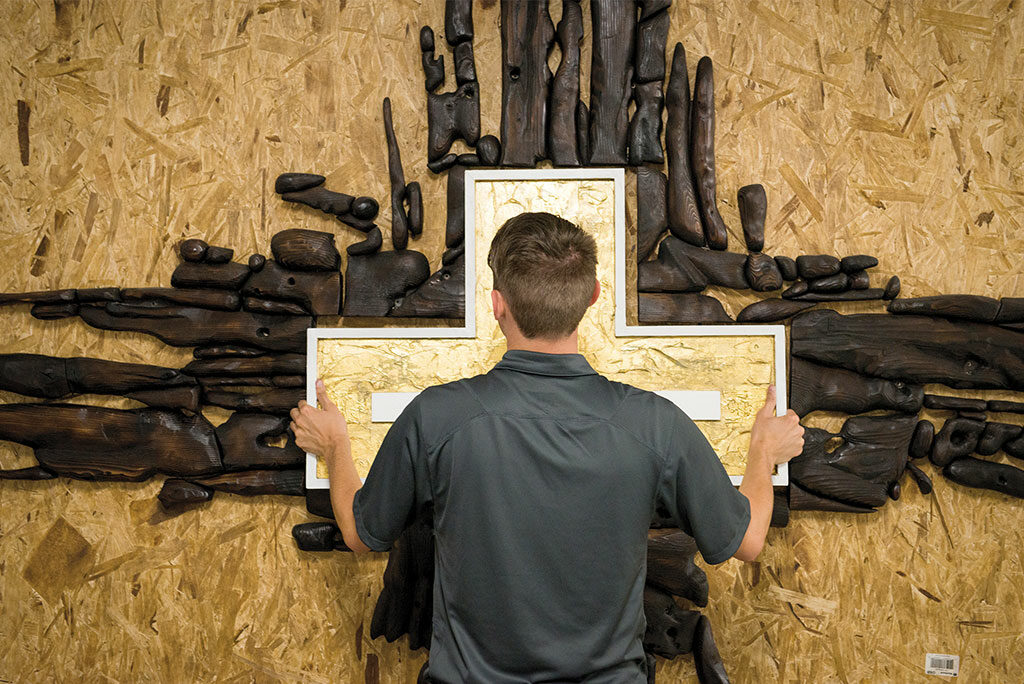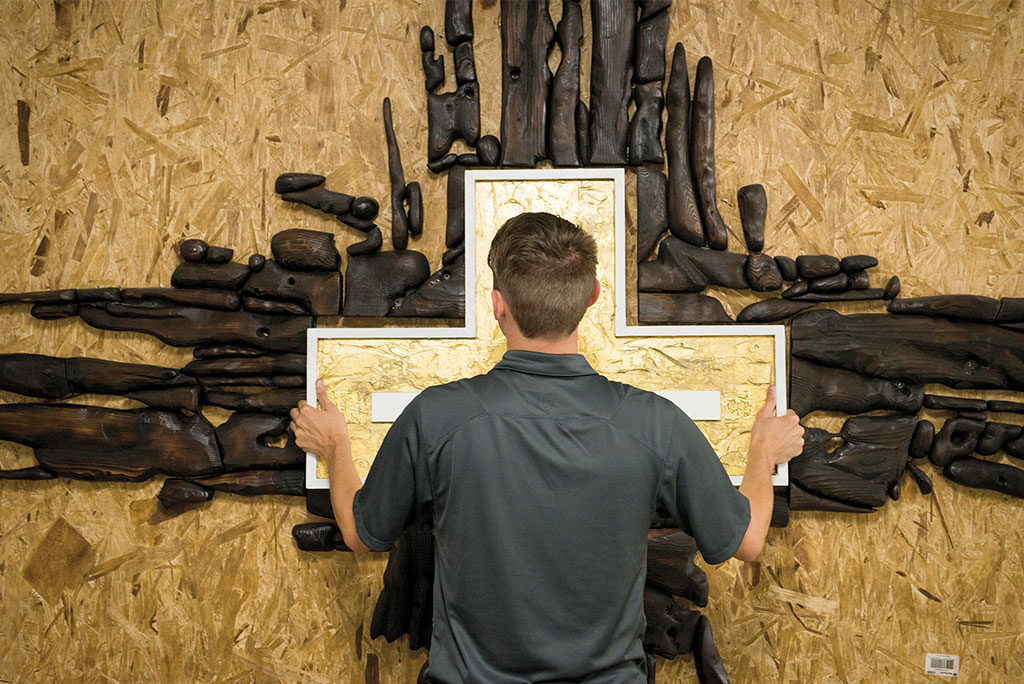
By Dean O. Wenthe
The colleges and universities of the Concordia University System have served The Lutheran Church—Missouri Synod with distinction. Their administrations, faculties, staffs, students and graduates have been the Lord’s instruments to bestow innumerable blessings upon the church. Now these colleges and universities, with the church, are facing a dramatically different culture in higher education and in society at-large.
For higher education, there is a widespread identity crisis. A few voices encapsulate what multiple studies have recently chronicled.
“The Claim is Simple: Higher education is ripe for disruption,” writes Michael Roth, president of Wesleyan University, in Middletown, Conn. “In recent years there has been a wave of publications expressing skepticism about the future of our colleges and universities — skepticism about the value of their educational outcomes, the deservedness of their social prestige, the sustainability of their business models” (“What Is a University For?” The Wall Street Journal, March 5-6, 2016, C7).
When one reads The Chronicle of Higher Education — perhaps the clearest window on what is happening in higher education — this sense of uncertainty is ubiquitous. There is no longer the triumphalism of previous epochs where the purpose and prestige of colleges and universities could be assumed. Representative of this are comments from Mark Edmunson, an English professor at the University of Virginia:
“One knows in order to consume. One knows in order to succeed. One knows in order not to be made a fool of. But one does not learn in order to acquire the only things that real learning offers: virtue and wisdom” (“Why We Need to Resurrect Our Soul,” The Chronicle Review, Sept. 11, 2015, B14).
The call to retrieve virtue, wisdom and the soul itself displays how profound confusion marks the core of education at the highest levels.
Jonathan Sacks, chief rabbi of the United Hebrew Congregations of the British Commonwealth, describes how this state of affairs permeates Western culture as a whole.
“What the secularist forgot is that Homo sapiens is the meaning-seeking animal,” Sacks writes. “If there is one thing the great institutions of the modern world do not do, it is to provide meaning. Science tells us how, but not why. Technology gives us power but cannot guide us as to how to use that power. The market gives us choices but leaves us uninstructed as to how to make those choices. The liberal democratic state gives us freedom to live as we choose but refuses, on principle, to guide us as to how to choose. Science, technology, the free market and liberal democratic state … are among the greatest achievements of human civilization … but they do not answer the three questions that every reflective individual will ask at some time in his or her life: Who am I? Why am I here? How then shall I live?” (“Swords Into Plowshares,” The Wall Street Journal, Oct. 3-4, 2015, C1).
These voices are only representative of a growing literature on the character and purpose of higher education.
It is not an exaggeration to say that in many academic settings, questions about the meaning of human life, the ones that Rabbi Sacks raises, are considered off-limits or simply naïve. Rather, with rigorous implementation, academic inquiry is limited to an expression of “critical thinking” that assumes no truth can withstand thorough cross-examination and critique.
This version of “critical thinking” results in the sterile, utilitarian knowledge that Professor Edmundson and Rabbi Sacks describe and reduces the university’s capacity to engage what was previously viewed as central to its calling, namely, virtue and wisdom. Of course, to inquire adequately into virtue and wisdom, the prior questions must be addressed: “Who are we? Why are we here? And, then, how shall we live?”
Now my thesis, as one indebted to and serving the Concordia University System, is that to the extent that theology is the breath, the DNA, the heart, the reason for being — across all the academic disciplines — of the Concordias, to that extent their mission and their character, under God’s grace, will open up opportunities and provide for a rich and vibrant future. Why? Quite simply because they are equipped to address the questions of meaning and virtue and wisdom. The Concordias are fountains of living water in the parched desert of higher education.
Further, because the vitality of the Concordia University System flows from theology, such vitality can be preserved and strengthened through time only by a dense embedment in the life of the church and in the truth that the church confesses, namely, that the life, death, Resurrection and Ascension of Jesus Christ are the definitive revelations of the Most Blessed and Holy Trinity — the One and Only God — faithfully communicated by the apostles and prophets — and rightly expounded by the Lutheran Confessions.
Such a claim in the contemporary academic marketplace is quite radical, even threatening, for it challenges the hegemony of the intellectual elites. For them, the church is the enemy, rather than the servant, of the truth.
But such a claim is based on another radical claim: Christ is Risen! “Father Martin” states that claim well in the excerpt that follows.
“Christ is Risen! This is quite a statement. And it’s one that non-Christians can readily grasp, even if they don’t believe it. Jesus of Nazareth, the man whose followers claim that he healed the sick, stilled storms, raised people from the dead and made the poor the center of his ministry, was crucified under the order of Pontius Pilate and died an agonizing death in Jerusalem. Then, as His followers believe — myself included — after three days in the tomb, He rose from the dead.
If you believe that Jesus rose from the dead … everything changes!” (emphasis mine) (Father Martin, The Wall Street Journal Review, March 26-27, C1-2).
Yes, everything changes! It changes our self-understanding. It changes our intellectual endeavors. It changes our social and ethical lives. It changes what a college or university is and does.
The Resurrection provides the means for higher education to address and to speak about meaning with intellectual integrity, and, in so speaking, it articulates and confesses the truth about God and the truth about human beings.
It is crucial and critical, therefore, that Christ’s Resurrection — the confession of the church — permeate the Concordia University System, even as the church is called to send her children and to support such Resurrection-informed learning heroically. How tragic if the church moves away from the universities or if they move away from the church!
In such a context, we have reason to rejoice and give thanks that the presidents and boards of regents of the Concordia University System have embraced and expressed solidarity with this identity statement: “As educational institutions of The Lutheran Church—Missouri Synod, the colleges and universities of the Concordia University System confess the faith of the Church. The Concordias uphold the teaching of Sacred Scripture and its articulation in the Lutheran Confessions. This includes the biblical truth that Jesus Christ — true God and true man — is the sole way to God’s mercy and grace; that at the beginning of time the Triune God created all things; that life is sacred from conception to natural death; and that marriage is a sacred gift of God’s creative hand between a man and a woman — over against the reductionistic assumptions of many in our culture who view men and women as only transitory and material beings.”
The Rev. Dr. Dean O. Wenthe (dean.wenthe@cus.edu) is president of the Concordia University System.
Posted May 27, 2016
